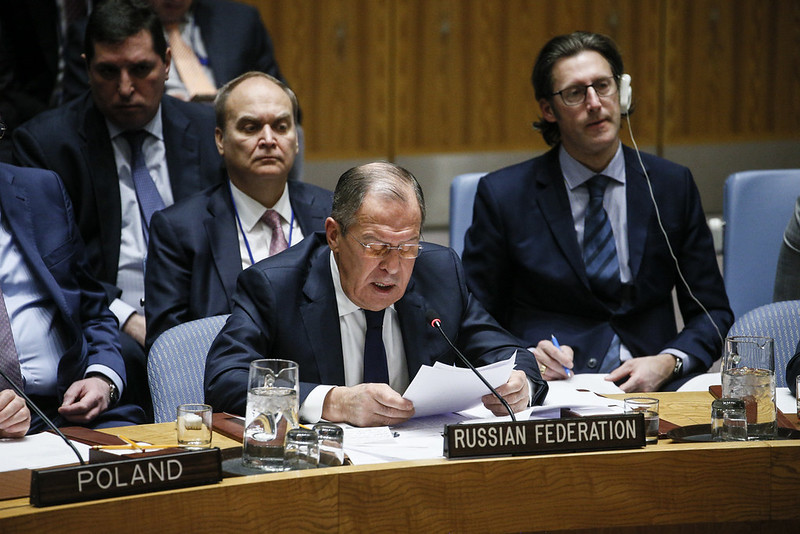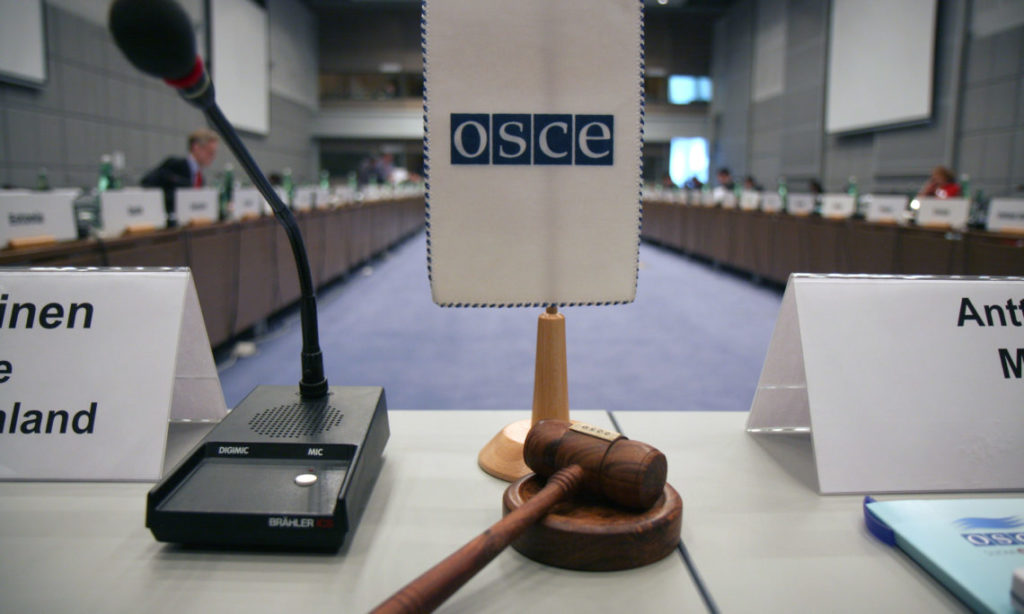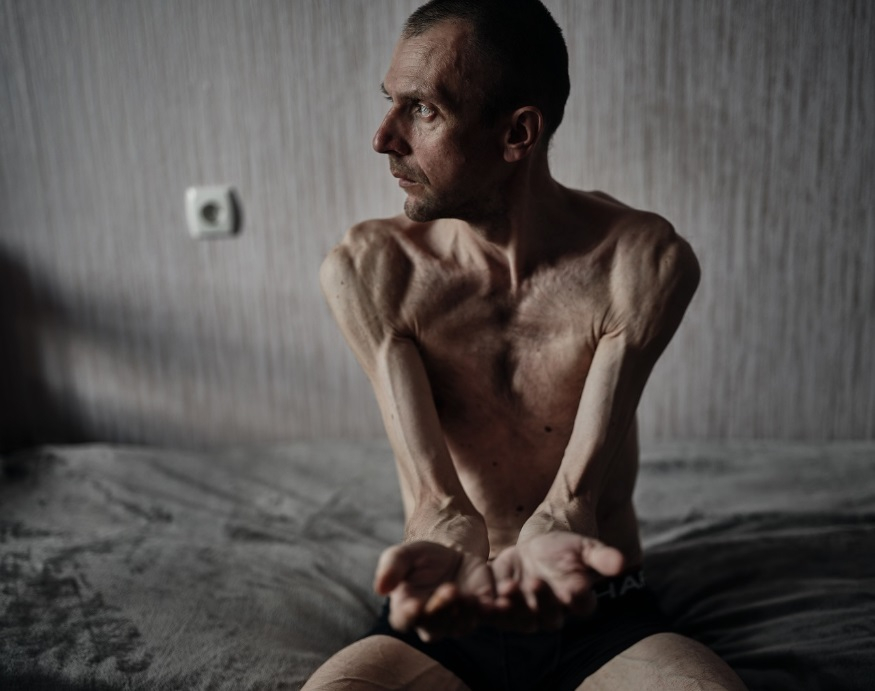While missiles hit Kyiv, the OSCE throws itself a birthday party
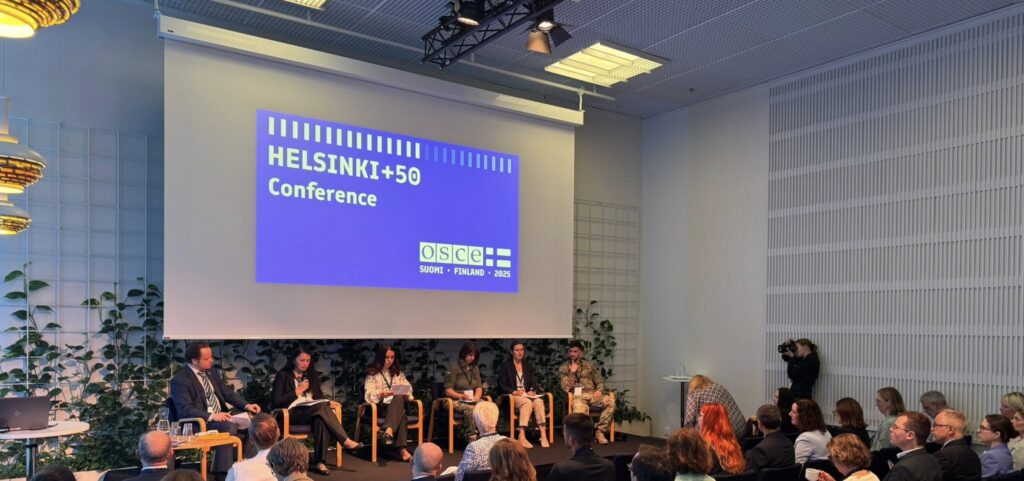
More than a thousand guests from different countries arrived in Helsinki on 31 July. Exactly half a century ago, this city hosted the signing of the Helsinki Final Act – a crucial step toward reducing East-West tensions and détente in the Cold War.
But here’s what makes this anniversary particularly grim: while diplomats gathered to celebrate 50 years of the Organization for Security and Co-operation in Europe, Russian missiles were raining down on Kyiv.
Thirty-one people died that day, including five children. Another 159 were wounded.
The timing reveals everything wrong with international institutions today. As rescue workers dug bodies from rubble in Ukraine’s capital, officials in Helsinki discussed reforms needed for an organization that can’t even secure the release of its own kidnapped staff members.
The fundamental contradiction
The OSCE emerged from the 1975 Helsinki Accords, establishing key principles including:
- territorial integrity
- non-use of force
- peaceful settlement of disputes
- and respect for human rights.
These weren’t abstract ideals – they represented a hard-won consensus between East and West that helped end the Cold War.
Today, one OSCE member state – Russia, assisted by another member, Belarus – has systematically violated every single Helsinki principle.
Moscow has seized and illegally annexed one-fifth of Ukraine’s territory, killed hundreds of thousands, kidnapped tens of thousands more, and reduced hundreds of villages to ruins. Russian forces have systematically raped Ukrainian women and men, while deporting and forcibly adopting Ukrainian children.
According to data from the ZMINA Human Rights Center and the Media Initiative for Human Rights, between 5,000 and 6,000 Ukrainian citizens face politically motivated persecution by Russia, including both military personnel and civilians. Occupation authorities prosecute them for crimes they didn’t commit – or for things that shouldn’t be crimes at all.
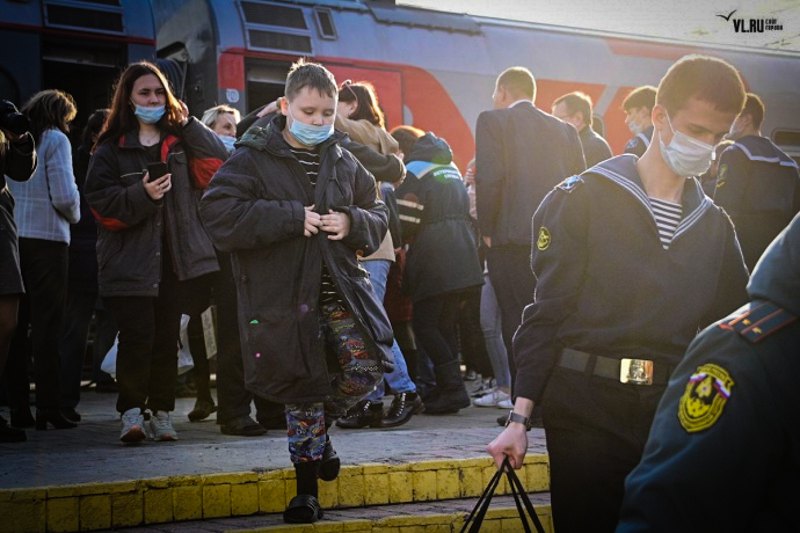
Deportation in the 21st century: what you need to know about Russia’s crime in Ukraine
Ukraine’s Foreign Minister recently stated that “a country that has violated all ten fundamental principles of the Helsinki Act should not hold a place in this organization.”
Among the victims: three OSCE staff members themselves.
When the organization abandons its own
Russians kidnapped three representatives of the OSCE Special Monitoring Mission – translator Maksym Petrov and security assistants Dmytro Shabanov and Vadym Golda – in April 2022 in Donetsk and Luhansk, where they were performing duties under a mandate granted by all 57 OSCE member states.
In September 2022, Petrov and Shabanov were charged with “treason” and sentenced to 13 years in prison following a sham trial in occupied Luhansk. Golda was found guilty of “espionage” by a “court” in Donetsk in July 2024 and sentenced to 14 years.
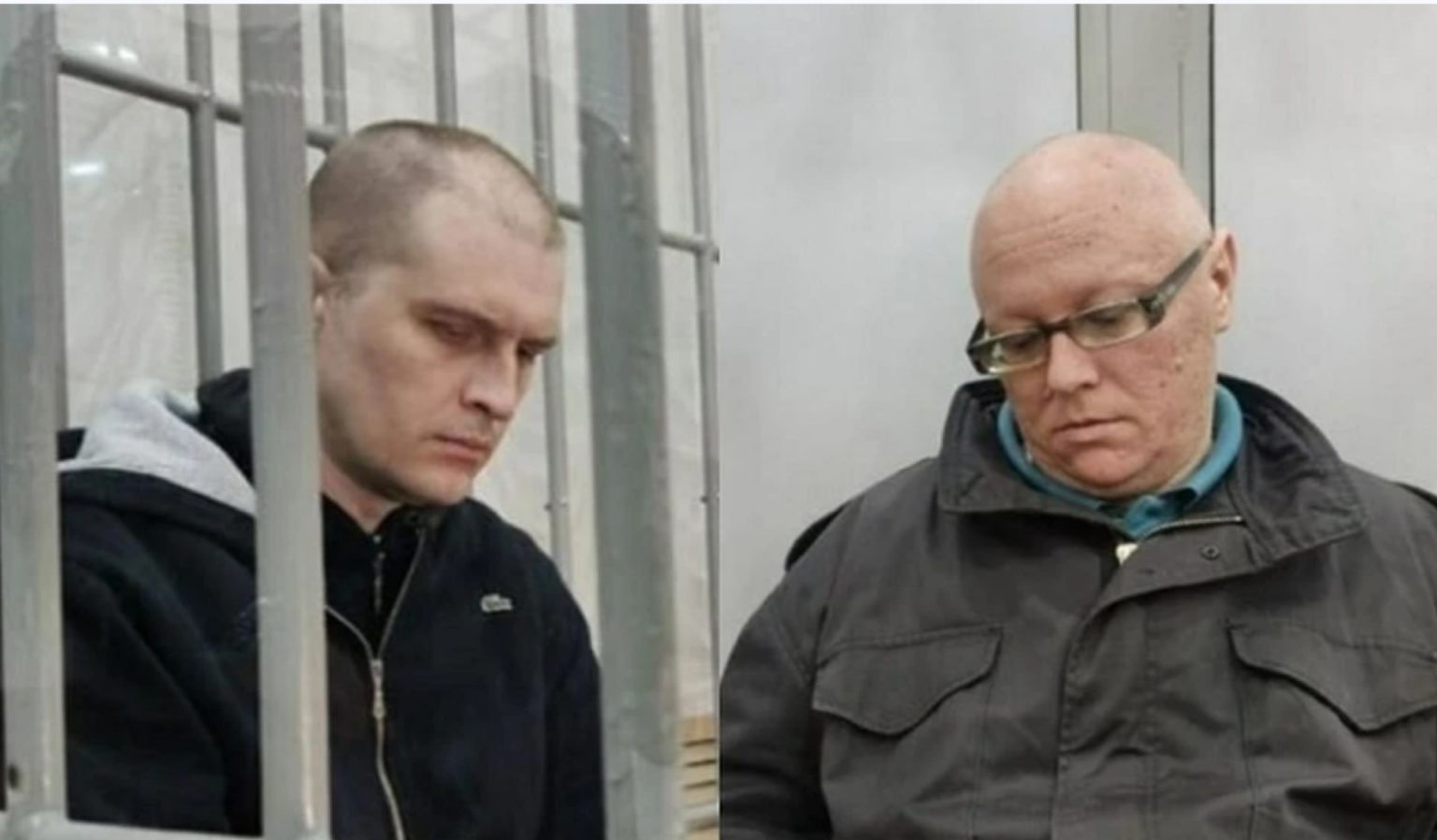
All three endured torture, inhumane detention conditions, and denial of proper medical treatment. The OSCE itself acknowledged that they were imprisoned on fabricated charges.
And yet? Russian Foreign Minister Sergey Lavrov – representing the country that kidnapped these OSCE employees – continued receiving invitations to OSCE meetings.
For four consecutive years now, Maksym Petrov, Dmytro Shabanov, and Vadym Golda remain in Russian captivity. Their names are regularly mentioned at various OSCE meetings. The Russian Federation often sits in the hall, continuing with particular cynicism to ignore calls for the release of OSCE workers.
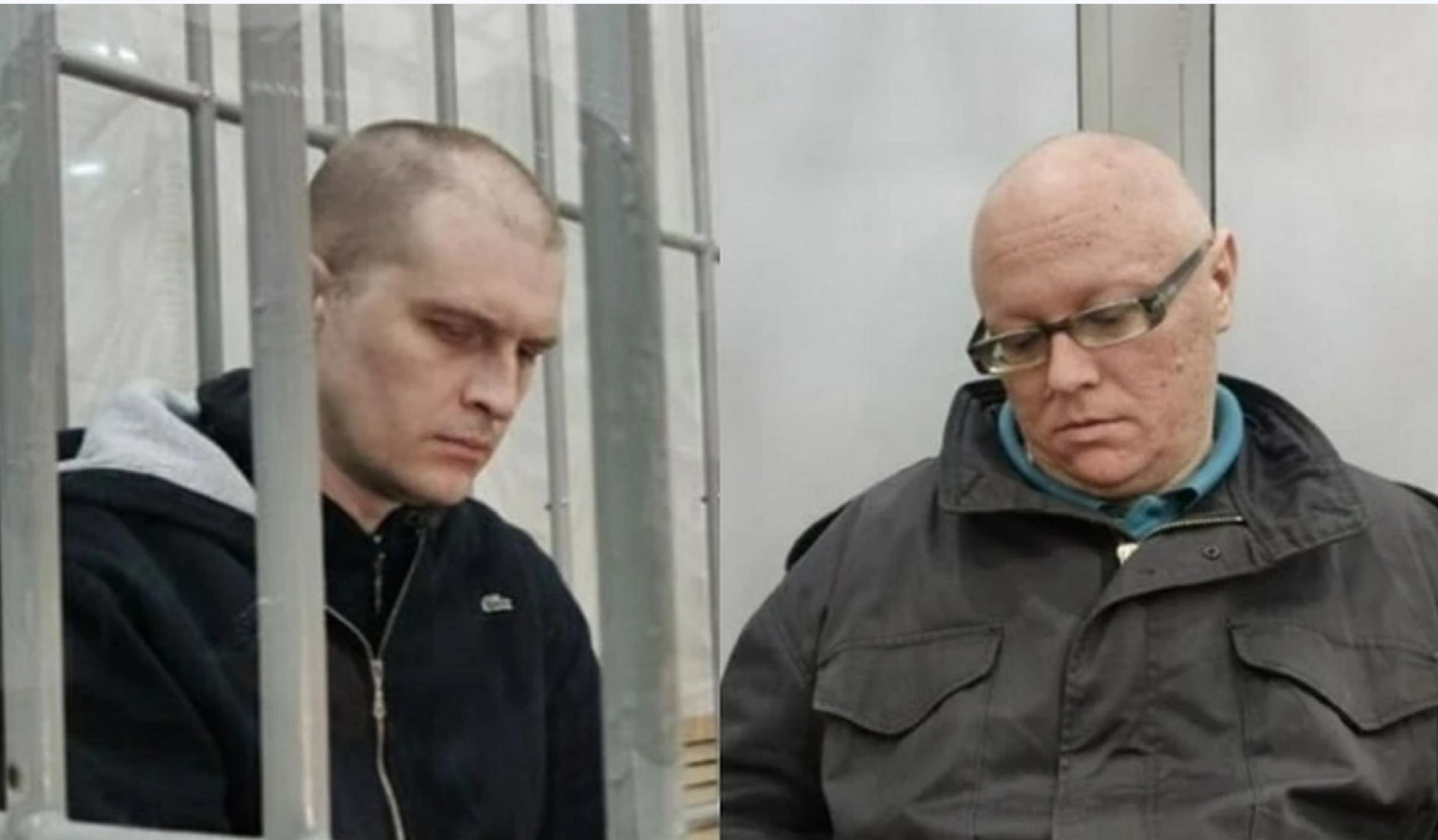
OSCE demands to free its Ukrainian workers sentenced in Russian proxy “republic” for “treason”
The consensus trap
This raises the fundamental question hanging over international institutions today: How can a country that systematically violates every key principle of an organization remain a member? And how can OSCE base its work on consensus when that same violator holds veto power?
The answer should be clear: Russia must be expelled from the OSCE.
The OSCE’s founding documents contain no procedure for expelling a state that undermines the organization’s foundation. This isn’t an oversight – it’s a feature that made sense during détente but has become a fatal flaw in an era of revanchist authoritarianism.
The implications extend far beyond Europe. When institutions designed to maintain international order prove incapable of responding to systematic violations, it signals to other potential aggressors that the rules-based system has no teeth.
China watches how the West responds to Russia’s war. Iran observes whether international law has enforcement mechanisms. North Korea notes whether treaties mean anything.
The Ukrainian laboratory
Ukraine has become an unwitting laboratory for testing whether international institutions can function against determined spoilers. The results are sobering:
- the UN Security Council remains paralyzed by Russian vetoes,
- the International Criminal Court issues arrest warrants that go unserved,
- and the OSCE continues operating under consensus rules that allow violators to block accountability measures.
Yet Ukrainian civil society continues working within these frameworks, understanding that abandoning international institutions entirely would leave smaller nations even more vulnerable. Organizations like the Ukrainian Helsinki Group, founded after the 1975 accords, used Helsinki principles to monitor human rights and demand Soviet compliance. That patient work contributed to the USSR’s eventual collapse.
The question now is whether international institutions can evolve fast enough to remain relevant.
Reform or irrelevance
The Civic Solidarity Platform – representing over 100 human rights organizations from the OSCE region – released a manifesto during the Helsinki anniversary that bluntly acknowledged reality:
“The OSCE is in crisis due to such key factors as its inability to prevent and stop Russian full-scale aggression against Ukraine” and “abuse of the consensus principle limits effective decision-making.”
Even civil society advocates admit the system is broken. But manifestos won’t save kidnapped OSCE workers or stop Russian missiles.
If the OSCE’s foundational documents lack procedures for addressing fundamental violations, perhaps it’s time to consider refounding the organization under new rules.
The manifesto calls for states to “use all appropriate OSCE tools, including the Moscow Mechanism, wherever large-scale violations of the Helsinki principles occur” and urges the organization to “strengthen its institutions” while being “open to civic scrutiny and participation.” But these recommendations assume good faith from systematic violators.
The broader lesson extends beyond any single institution. When faced with actors who systematically abuse international frameworks while claiming their protections, those frameworks must adapt or become irrelevant.
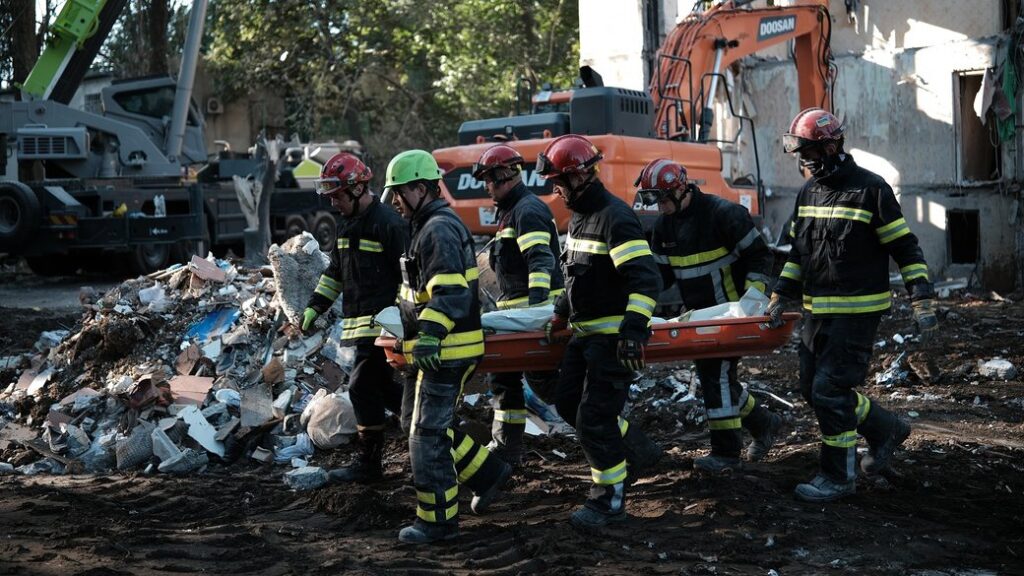
As rescue workers in Kyiv cleared rubble from Russian strikes during OSCE’s anniversary celebration, the organization’s existential crisis became impossible to ignore. Institutions that cannot protect their own staff members – or respond meaningfully to the largest European war since 1945 – may have outlived their usefulness.
The choice facing the OSCE, like other international institutions, is stark: reform to address systematic violators, or preside over the gradual erosion of the rules-based international order they were designed to protect.
Tetiana Pechonchyk
A Ukrainian-language version of this op-ed was initially published on Zmina.info

